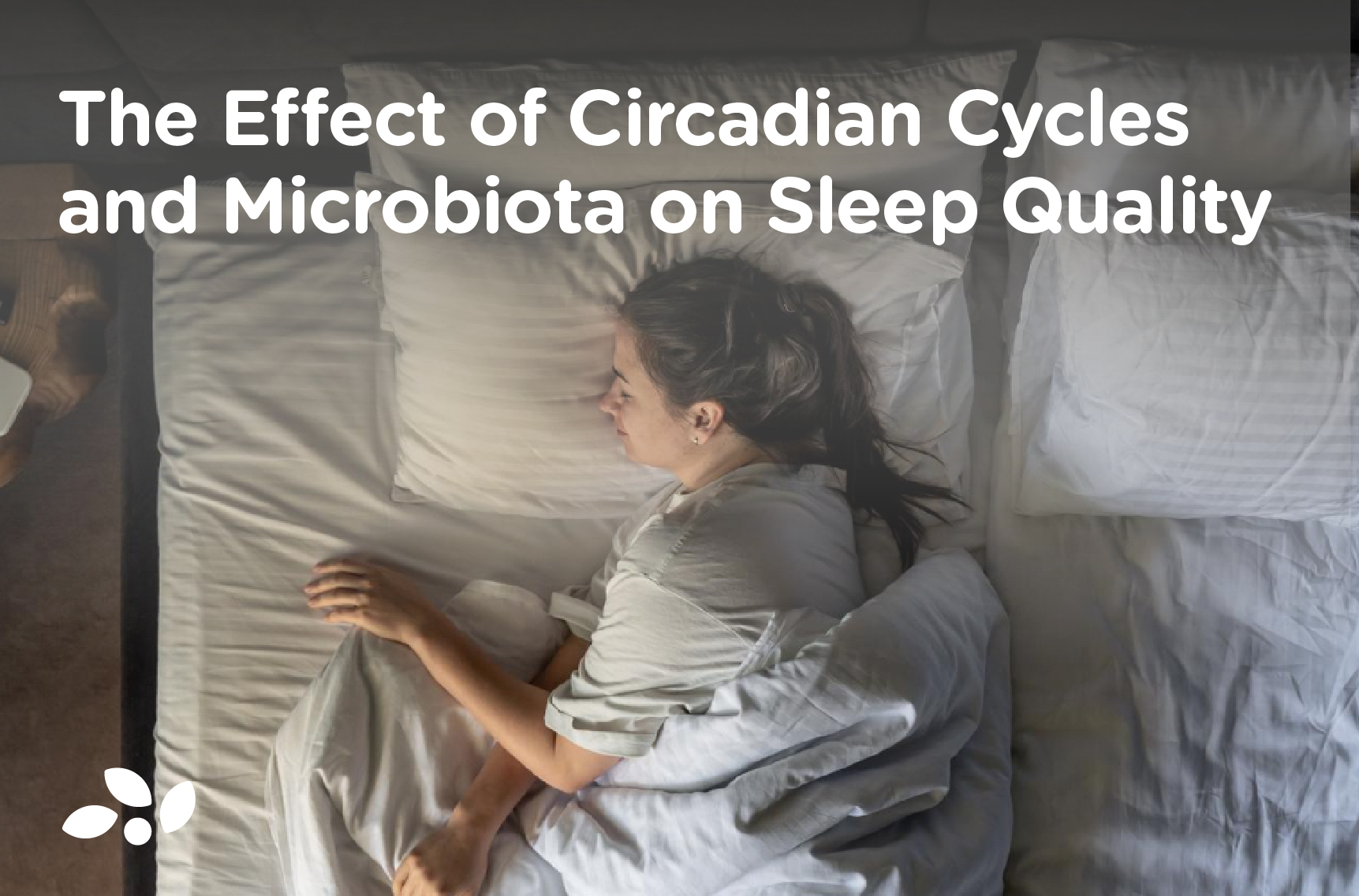Today’s society lives at a frenetic pace that often leads to stressful and anxious situations, resulting in poor sleep quality. This scenario, together with factors such as inadequate nutrition, creates the ideal breeding ground to trigger the global pandemic of non-communicable diseases, such as obesity, diabetes and cardiovascular disorders.
We spend a third of our lives sleeping, which alone demonstrates its importance, but sleep also allows us to perform a large part of the daily recovery processes: regulation of the immune system, memory consolidation, DNA repair, growth hormone secretion (essential for body tissue repair and growth in children), among many others.
One of the essential pillars for maintaining the balance of our body and sleep is the biological clock. Although many people do not fully understand how it works, its influence on our health is increasingly discussed, especially in the regulation of the night cycle. Circadian cycles are physiological changes that our body undergoes throughout the day, such as the sensation of sleep or the digestive process after meals, and are closely linked to the proper functioning of this internal clock.
The human body has several “biological clocks” distributed in different organs and tissues, which function autonomously but synchronized thanks to a “master clock” located in the brain. This master clock acts like a conductor and responds to external stimuli such as light, hormones, metabolic signals and, surprisingly, the intestinal microbiota.
The microbiota, composed of billions of microorganisms that inhabit our gut, plays a fundamental role in the regulation of circadian cycles and, therefore, in the quality of sleep. In fact, a gut dysbiosis correlated with fragmentation in the stages of sleep has been observed. This regulation appears to be mediated by metabolites secreted by the microbiota, such as short-chain fatty acids (SCFA). Kristin L. Eckel-Mahan et al. demonstrated this in one study (1), and Éva Szentirmai et al., in another study in mice, supplemented mice with SCFA and observed an improvement in REM and non-REM phases of sleep (2).
Not only does poor or little sleep affect our mood and energy, but it is also associated with serious health problems such as obesity, depression, cardiovascular disease and even Alzheimer’s disease. In addition, sleep duration in the general population is increasingly decreasing, aggravating these risks and increasing the incidence of these diseases. Currently, a high percentage of the adult population sleeps only 6 hours, which is less than the recommended 7-8 hours.
Recent studies have revealed that sleep cycle dysregulation also alters the composition of the intestinal microbiota. In people working night shifts, for example, the presence of bacteria such as Coprococcus, which are closely related to poor sleep quality, has been detected. In addition, there is an imbalance between bacteria such as Firmicutes and Bacteroidetes, which is related to an unfavorable prognosis for health (3). In other words, by deregulating our cycles, the microbiota is altered, and this alteration of the microbiome affects the individual in a bidirectional relationship.
In another study, healthy young people preparing for a stressful exam received a 24-week supplement of Lactobacillus gasseri CP2305. The results showed a significant improvement in sleep quality, both subjectively and objectively, as well as a reduction in stress. In addition, with the presence of this supplemented strain, a decrease in bifidobacteria, beneficial bacteria for intestinal health, was prevented, while in the control group, which did not receive the supplement, this improvement in sleep was not observed and a reduction in bifidobacteria was observed (4).
For all these reasons, it is essential that we become aware of the importance of maintaining a good quality of sleep and following a balanced diet that promotes a healthy microbiome. In this sense, the Mediterranean diet, rich in fresh and natural foods, is recommended by the WHO for its ability to promote optimal health in all senses. At the same time, we should reduce the use of screens before bedtime, as the blue light they emit interferes with our internal clock, disrupting the sleep-wake cycle and affecting both the microbiota and our general well-being.
In short, living in harmony with our biological clock is essential for overall health. Adopting simple habits such as taking care of our sleep, following a healthy diet and establishing consistent routines will allow us to maintain the balance our body needs to function properly.
References
(1) Eckel-Mahan, K. L., et al. (2017). “Circadian oscillations in microbiota and SCFAs contribute to metabolic regulation.” Cell Metabolism, 25(1), 85-101.
(2) Szentirmai, É., et al. (2019). “Short-chain fatty acids regulate sleep and improve sleep fragmentation in mice.” The Journal of Neuroscience, 39(7), 1250-1265.
(3) Al Khatib, H. K., et al. (2021). “Shift work, gut microbiome and cardiometabolic risk.” Journal of Biological Rhythms, 36(3), 235-252.
(4) Nishida, K., et al. (2017). “Effects of Lactobacillus gasseri CP2305 on sleep and stress in young adults under academic examination stress.” Journal of Applied Microbiology, 122(1), 235-244



